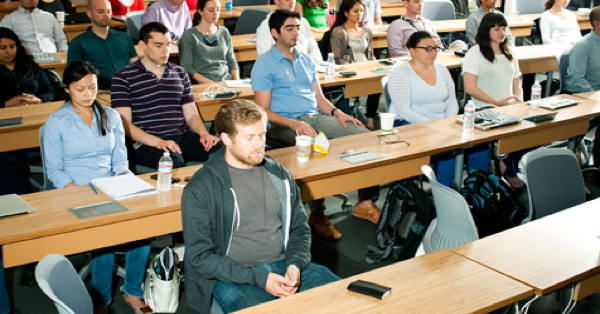
- A developing assortment of proof proposes ordinary meditation is connected with advantages including lower pressure and better core interest.
- Meditation is Silicon Valley’s most blazing pattern — CEOs have received the training, and applications dedicated to it have multiplied.
- Another paper recommends individuals who partook in a reflection retreat detailed declines in nervousness and melancholy.
By giving our clamoring mind a committed break from its everyday stresses, meditation seems to enable it to run all the more effective. A developing collection of research proposes that even a couple of minutes of a day by day care practice is connected to bring down feelings of anxiety, greater energy, better center, and innovativeness.
These benefits haven’t gone unnoticed amongst engineers and CEOs in Silicon Valley. Salesforce CEO Marc Benioff, Twitter CEO Jack Dorsey, and Google prime supporter Sergey Brin all contemplate, according to the San Francisco Chronicle, and their organizations give chances to workers to do as such too. Meditation applications and contraptions have additionally multiplied. Muse, a $249-dollar “cerebrum detecting headband” is showcased as an individual reflection aide, and the organization behind care application Simple Habit has raised $2.5 million.
Several studies, including a paper published this month in the journal Frontiers in Human Neuroscience, have discovered that meditation’s benefits can be estimated both in a roundabout way — by means of answers to addresses like “How pushed do you feel at the present time?” — and straightforwardly, utilizing natural and neurological tests like blood tests and MRI checks.
In a recent article for Scientific American, neuroscientists Richard Davidson and Antoine Lutz, alongside Buddhist priest Matthieu Ricard, composed that “the disclosure of reflection’s advantages matches with late neuroscientific discoveries demonstrating that the grown-up mind can, in any case, be profoundly changed through involvement.”
For the latest paper, specialists saw how taking an interest in a three-month yoga and meditation retreat influences three variables: cortisol arousing reaction (a proportion of how we react to a distressing occasion), incendiary pressure markers, and cerebrum determined neurotrophic factor, which assumes a job in learning, memory, and stress. The analysts found that retreat members demonstrated “diminishes in self-announced uneasiness and wretchedness just as increments in care” — impacts that were reflected by numerous physical pointers estimated.
A significant number of us experience the day with troubling considerations or concerns murmuring at the back of our psyches. We frequently push these musings aside as opposed to managing the sentiments they raise.
Something about reflecting — regardless of whether it’s simply the physical space we set up for ourselves every day or the psychological space we make by routinely clearing the brain — seems to help us deal with these negative considerations.
A vast survey of studies including near 3,000 individuals found that care meditation was linked with a reduction in feelings of depression, anxiety, and even physical pain.
Experienced meditators’ minds seem to well-developed regions that may be connected to things like awareness and emotional control. A few investigations even recommend that in individuals new to reflection, the training is connected with noteworthy with significant changes in parts of the brain related to memory, a point of view, and mindfulness.
Normal meditation additionally appears to make it easier for us to center. Richard Davidson, a neuroscientist who has contemplated reflection and the mind for quite a long time, looked into this idea for a long term study. He looked at individuals who had been reflecting for a considerable length of time with complete beginners and attempted to alarm two gatherings of individuals — one that was ruminating and one that was not — with an unexpected interference like an uproarious clamor. Those meditating or reflecting werefar less perturbed than the people who weren’t,than the general population who weren’t, paying little heed to whether they were new or experienced.
For another piece of his exploration, Davidson had encountered meditators and novices tune in to the hints of worried voices. He watched expanded action in two mind regions known to be associated with compassion in the two gatherings. Be that as it may, that expansion was fundamentally progressively articulated experienced meditators. Davidson concluded that individuals who think routinely may have an improved capacity to react to others’ emotions and identify with them without inclination overpowered.
Generally speaking, meditation seems, by all accounts, to be successful in light of the fact that it furnishes us with a sense of perspective.
“Meditation expores the nature of the brain,” Davidson composed. Maybe that investigation enables individuals to improve their wellbeing notwithstanding finding calm.


